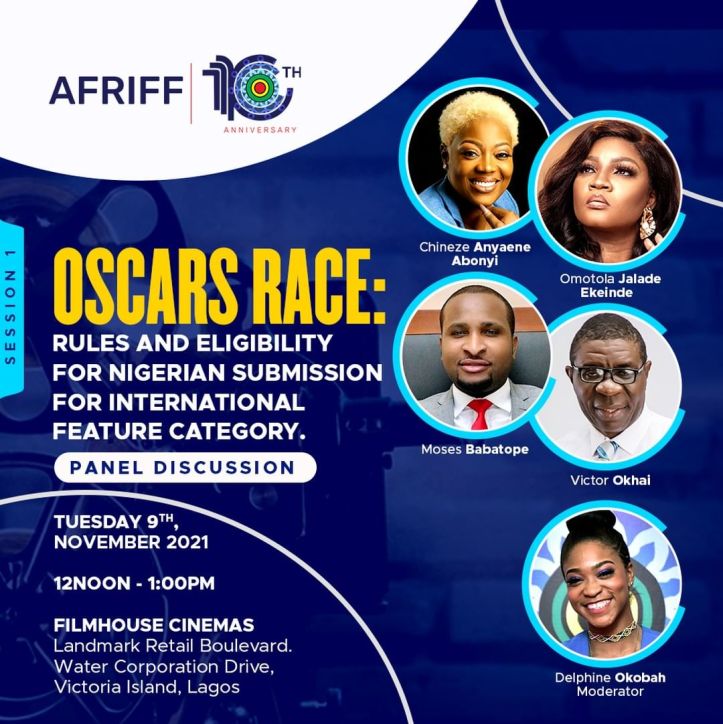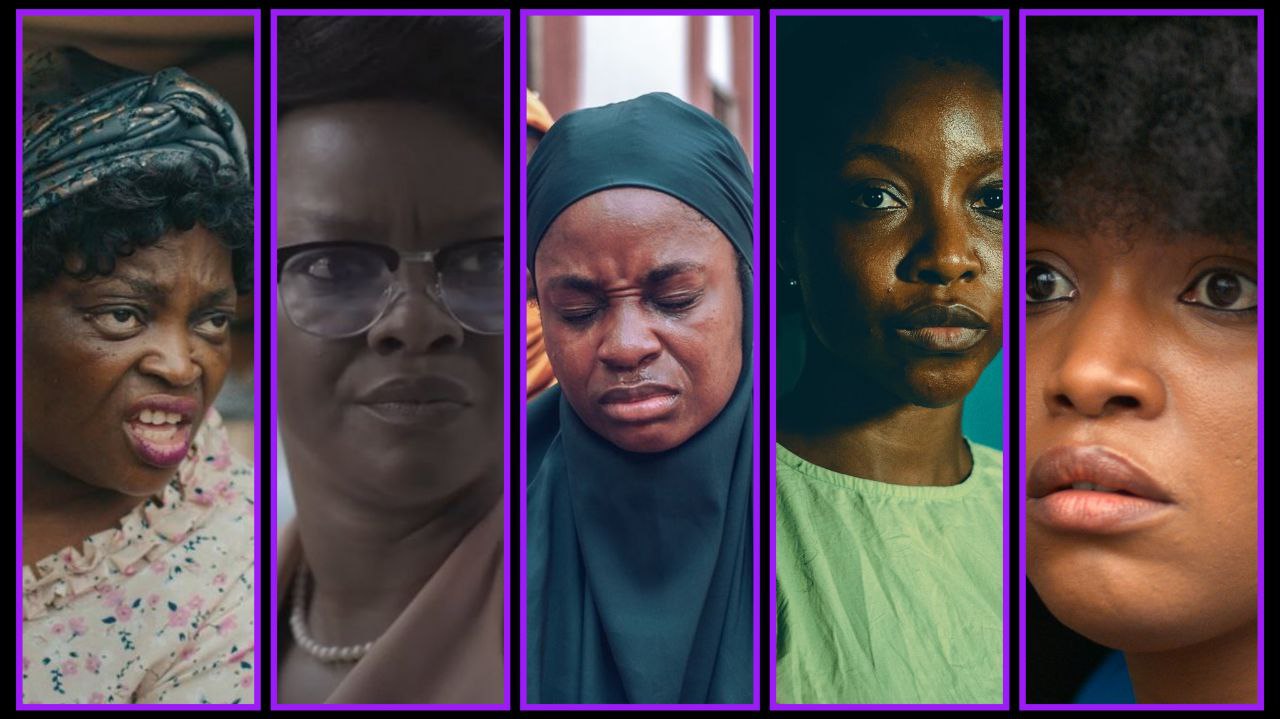The second session on the third day was titled Oscars Race: Rules and Eligibility for Nigerian Submission for International Feature Category. It covered the frustrating relationship Nollywood has had with the Academy of Motion Picture Arts and Sciences in recent times despite Milkmaid, the country’s first entry last year which didn’t make it past the first round. Delphine Okobar moderated the session and the panelists were Moses Babatope, Chineze Anyaene, Victor Okhai, and Omotola Jalade-Ekehinde.
Related:

Delphine opened the session with the direct question of why Nollywood’s Oscar entries haven’t even passed the submission process. Victor Okhai responded that if any director is entering the submission process, it is best to read the rules thoroughly. Moses Babatope highlighted some of the parameters for Oscar selection. The theatrical content, he says, is fundamental; the movie has to have spent seven days in the theatres. The aspirations of the filmmakers must be about making a film cinematic worthy. Everything from sound, picture, cinematography, must be present. It has to be of quality.
Delphine pressed further about why filmmakers’ submissions this year didn’t go past the committee. Omotola Jalade, a voting member of the Oscars, said our filmmakers need to shoot with intent. The filmmakers who submitted this year didn’t shoot with intent for the Oscars. The rules are there but they weren’t followed. “We messaged Oscars about the language requirements and they replied that they can’t change the rules for Nigeria, Nigeria has to conform to the rules.” Victor added that we can look elsewhere from the foreign language category; there are the shorts, documentary, animations, and other categories to be explored. Moses Babatope stated that to be in a realistic contention for Oscars, it has to go through the festivals. He also mentioned the immense lobbying that goes on for the Oscars. When you do great films, he motioned to the house, let it be seen by the right people.
Related:
 AFRIFF 2021 Day Two: Amazon Prime Video’s Strategy to Rival Netflix in Sub-Saharan Africa
AFRIFF 2021 Day Two: Amazon Prime Video’s Strategy to Rival Netflix in Sub-Saharan Africa
Omotola urged the government to support the submissions. “What I have noticed is that most of the films that are submitted from other countries are heavily backed by the country’s government. And as a voting member, you get so much lobbying from big studios. You have to do the most to get to the front of the line. And the only way to do this is by intense promotion, and no individual filmmaker can do this themselves. The Nigerian government needs to get behind the selection.” Moses adds, “It’s great to want to be in the Oscars, but we have to do things the right way.” Another automatic route to getting into the Oscars is by winning an Oscar-qualifying festival.
During the Q&A session, Francis Nebot, the French producer of Juju Stories, one of the rejected Oscars submissions for this year, spoke up that the disqualification measure expressed—that Juju Stories is three short films camouflaged as a feature—is incorrect. And he cited an Oscar-winning film from Argentina that had six short films merged into a feature. Members of the panel responded that there were other measures that Juju Stories didn’t meet up with. What was in agreement, however, was that even though the road isn’t clear, we have the map now.
Follow our daily AFRIFF updates on our social media accounts.
 Keep track of upcoming films and TV shows with Google calendar.
Keep track of upcoming films and TV shows with Google calendar.






5 Comments